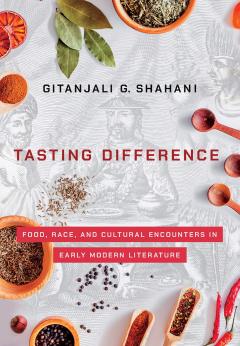Tasting Difference examines early modern discourses of racial, cultural, and religious difference that emerged in the wake of contact with foreign peoples and foreign foods from across the globe. Gitanjali Shahani reimagines the contact zone between Western Europe and the global South in culinary terms, emphasizing the gut rather than the gaze in colonial encounters. From household manuals that instructed English housewives how to use newly imported foodstuffs to "the spiced Indian air" of A Midsummer Night's Dream, from the repurposing of Othello as an early modern pitchman for coffee in ballads to the performance of disgust in travel narratives, Shahani shows how early modern genres negotiated the allure and danger of foreign tastes. Turning maxims such as "We are what we eat" on their head, Shahani asks how did we (the colonized subjects) become what you (the colonizing subjects) eat? How did we become alternately the object of fear and appetite, loathing and craving? Shahani takes us back several centuries to the process by which food came to be inscribed with racial character and the racial other came to be marked as edible, showing how the racializing of food began in an era well before chicken tikka masala and Balti cuisine. Bringing into conversation critical paradigms in early modern studies, food studies, and postcolonial studies, she argues that it is in the writing on food and eating that we see among the earliest configurations of racial difference, and it is experienced both as a different taste and as a taste of difference.
Tasting Difference
Food, Race, and Cultural Encounters in Early Modern Literature
Categories:
Language:
Engleza
Publishing Date:
2020
Publisher:
Cover Type:
Hardcover
Page Count:
222
ISBN:
9781501748707
Dimensions: l: 15cm | H: 23cm | 57g
Unavailable
Price applicable only to online purchases!
Free Gift Wrapping!
Free shipping over 150 RON
You can return it in 14 days
You got questions? Contact Us!

